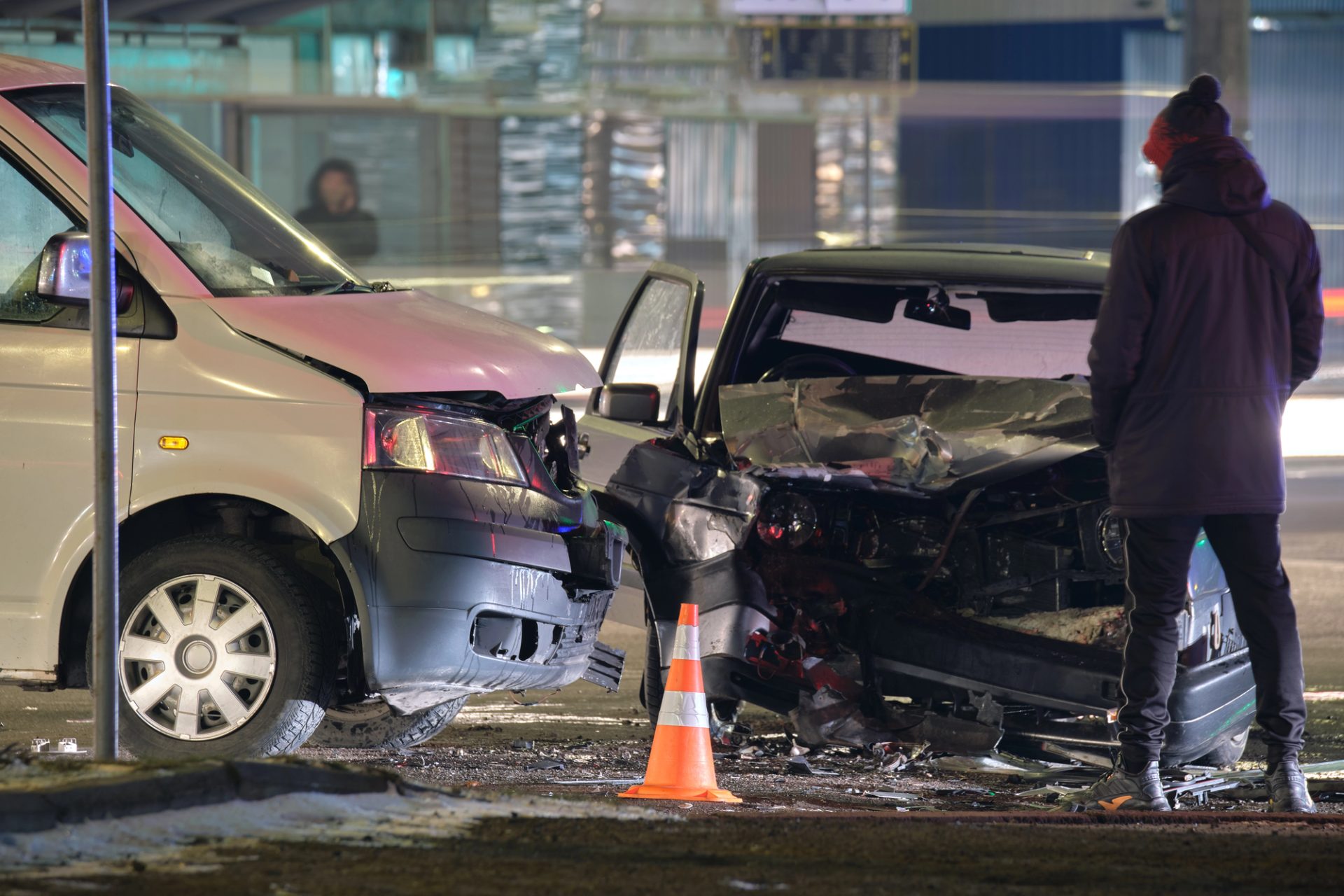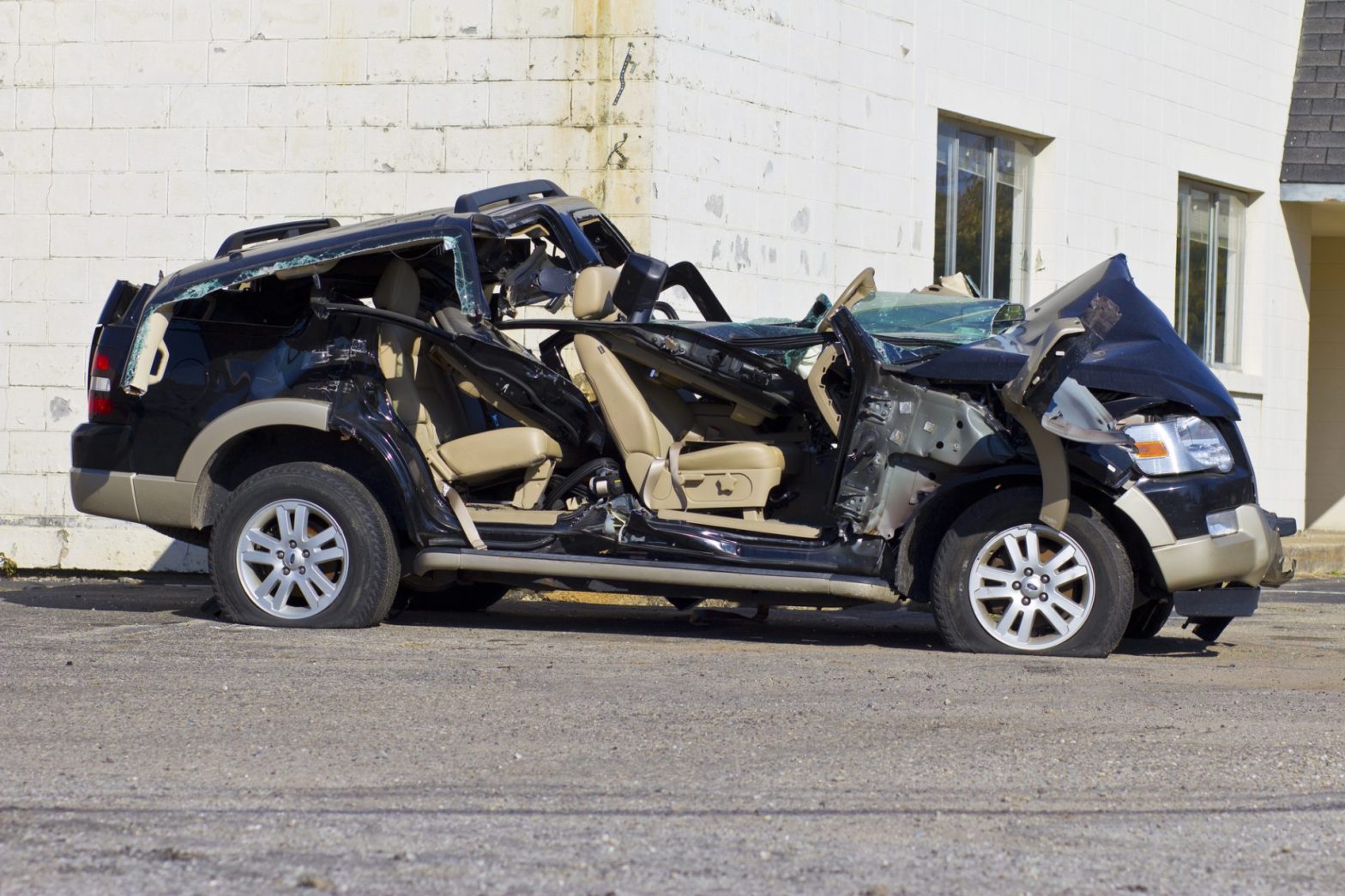Finding your car totaled in an accident that is not your fault can be disheartening, and if you think that the at-fault driver’s insurance company will compensate you for your damages and ease your misery, you might be in for a rude shock. This is because insurance companies do their best to minimize their liability and even reject claims when possible. So, if you find your car totaled in a no-fault accident, it’s best to know how the insurance process might unfold.
What Is a Total Loss in a Car Accident in New York State?
The criteria for total loss of a car in New York revolve around the relationship between the cost of repairs and the vehicle’s actual cash value (ACV). Typically, if the cost to repair a vehicle exceeds 75% of its ACV, an insurance company is likely to declare it a total loss.
In addition to the severity of the damage, insurance companies look at different factors to arrive at a car’s ACV. These include:
- Year, make, and model.
- Miles travelled.
- Options and features.
- Upgrades, improvements, and dealer add-ons.
- Overall condition of the car.
- Maintenance records.
- Accident history.
- Salvage value.
While insurance companies tend to follow their own methodologies to arrive at ACVs, it is also common for them to check the prices of comparable vehicles that are up for sale.
What to Do When Your Car Is Totaled?
For starters, know that total losses in car accidents are not uncommon. According to the LexisNexis Risk Solutions 2023 U.S Auto Insurance Trends Report, of all the collision claims filed in the first nine months of 2022, 27% were total losses. So, what do you do if your car is totaled and you’re not at fault?
At the Scene of the Accident
If you’re physically and mentally sound after an accident, document the scene well. This includes making notes and capturing videos/photos of the damage to your vehicle and your injuries. Calling the police is always a good idea because they can document their version in their report. If there are witnesses, collect their contact information.
Seek Medical Assistance
Getting an initial medical examination after a car accident is crucial because waiting for an extended period can give an insurance company an opportunity to question the severity of your injuries. While prompt medical assistance can help identify any injury you might have, your medical records also serve as proof when you’re trying to seek compensation.
Notify Your Insurance Company
New York is a no-fault insurance state. However, even if you’re in a no-fault accident and plan to file a claim with the at-fault driver’s insurance company, it’s generally advisable, and often necessary, to notify your own insurance provider.
While you might initially think that the other driver is entirely at fault, circumstances can change later. Notifying your insurer protects you in case complications arise, such as disputes over fault or if the other driver’s insurance is insufficient.
File a Claim
Soon after you meet with an accident, ask for the at-fault driver’s name, address, phone number, driver’s license number, and insurance information (provider’s name and policy number). Contact the at-fault driver’s insurance company as soon as possible to report the accident. However, refrain from providing any information it might use against you later, and don’t offer an official statement. Ideally, discuss the specifics of your case with a car accident attorney to determine the best way forward.
How Much Money Will I Get if My Car Is a Total Loss?
If an insurance company determines that your car is a total loss, it needs to compensate you based on your car’s ACV. However, it will not replace your car or guarantee that the compensation amount will be enough to purchase a comparable car. In addition, you might not be able to hold on to the totaled car.
Once you accept an insurance company’s settlement offer, it typically takes possession of the wrecked car, either to fix and sell as a salvage-titled vehicle or to sell it to a scrap yard. In some cases, you might be able to negotiate with the insurance company and retain possession of the car.

How to Get the Most Money From Insurance for a Totaled Car?
It is common for insurance companies to undervalue cars when processing claims for total losses. However, you don’t have to accept the first offer that comes your way, and you need to follow a few steps if you hope to receive a fair settlement.
- Find out your car’s ACV. It is possible to get an indication of your car’s ACV by checking the prices of comparable models online, while also accounting for factors like condition and mileage. Getting estimates for repair costs from multiple mechanics is ideal. This information helps you determine if an insurance company’s initial offer is any good.
- Negotiate. If you find the initial offer to be below par, you need to present the evidence you collect to the insurance company and negotiate for a better offer. If you feel you lack the skills, you may get a car accident attorney to negotiate on your behalf.
- Finalize the settlement. If you arrive at a settlement, make sure the insurance company confirms the same in writing. This should include the payout amount along with any specific conditions.
Who Gets the Insurance Check When a Car Is Totaled?
If a car is a total loss, the distribution of the insurance check depends on who holds the title to the vehicle and whether there’s an outstanding loan or lease.
- If you own the vehicle outright, the insurance company will typically issue the check directly to you.
- If you have an outstanding loan on the vehicle, the insurance company will usually issue a check to the bank or financial institution that holds the loan.
- If the insurance settlement exceeds the loan balance, you get the remaining funds.
- If the insurance settlement is less than the loan balance, you will still owe the remaining balance to the lender.
- If you are leasing the vehicle, the insurance company will typically issue the check to the leasing company.
- If the settlement does not cover the remainder of the lease, you may be responsible for the difference.
What to Do When Your Car Is Totaled and You Still Owe Money?
You might face a problem if the amount you owe toward your car loan exceeds the money you stand to receive from the insurance company. This is because you remain liable to pay the difference, even if you can no longer use your car. People who have gap insurance don’t have to worry about this aspect because it helps cover the difference between the amount you owe and the compensation you receive.
Someone Totaled My Car, Can I Sue?
An at-fault driver’s insurance company is typically responsible for covering the damages. However, if the insurance is insufficient or if a driver is uninsured, you may need to pursue the matter legally by suing the other party. In such a scenario, the damages you may seek compensation for include the actual cash value (ACV) of your totaled car, medical expenses, emotional distress, lost wages, and rental car expenses.
Conclusion
Now that you know what to expect if you find your car totaled in a no-fault accident, make sure you approach the process with due diligence. In case the amount offered by an insurance company exceeds the ACV of your vehicle and covers any outstanding loan amount, you might be good to go. However, if you feel that an insurance company is trying to cut you short, seeking advice from a car accident attorney might be in your best interest.

